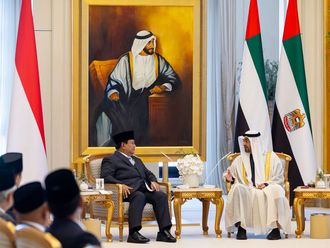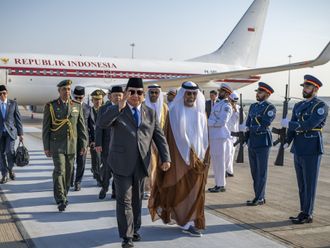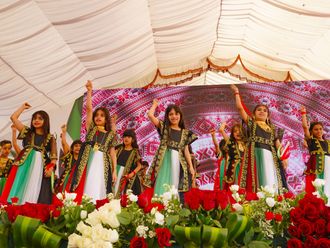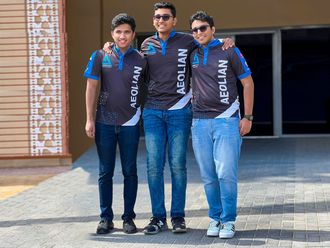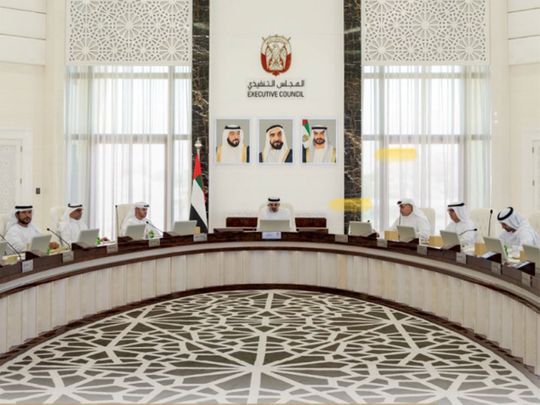
Abu Dhabi: Sheikh Khaled bin Mohamed bin Zayed Al Nahyan, Crown Prince of Abu Dhabi and Chairman of the Abu Dhabi Executive Council, today chaired the first meeting of the Executive Council at the Abu Dhabi Crown Prince Court.
During the meeting, he was briefed on a number of government plans and projects, as well as government priorities and service-related initiatives to benefit citizens and residents. His Highness highlighted that the Executive Council will ensure the continuity of the Abu Dhabi Government’s commitment to achieving the priorities and vision of President His Highness Sheikh Mohamed bin Zayed Al Nahyan by further enhancing the quality of life for citizens and continuing to strengthen their security and stability through the key pillars of housing, education and healthcare.
During the meeting, the Executive Council approved the updated housing benefits policy, including updated eligibility criteria to further empower Emirati families and meet their needs by reducing waiting times to claim housing benefits.
The policy includes providing ready-built homes free-of-charge for low-income citizens, increasing the value of housing loans to support those in need, and establishing criteria for swapping housing benefits.
During the meeting, the Executive Council reviewed progress on current government initiatives, including housing and facilities projects. Sheikh Khaled gave directives to develop a comprehensive and future-proofed housing services framework for citizens in Abu Dhabi in partnership with the private sector, to ensure a smooth and time-efficient construction process and rapid access to services.
He also gave directives for several accelerators to be put in place to provide suitable homes for citizens as quickly as possible.
Sheikh Khaled was introduced to plans, updates and outcomes of the first phase of the Livability Strategy, which includes the development of community facilities projects worth Dh12 billion in Abu Dhabi, Al Ain and Al Dhafra. These include pedestrian and bicycle paths, sports facilities, health clinics, mosques, public parks and green spaces.
Having reviewed the initial outcomes of the first phase of the Livability Strategy, he gave directives to start the next phase of the Livability Strategy, which is in line with the vision and commitment of Abu Dhabi Government to develop and provide integrated and sustainable neighbourhoods that offer a healthy lifestyle in line with Emirati culture and traditions.
The Executive Council also reviewed progress being made within the Abu Dhabi Government services ecosystem. He gave directives for the government services ecosystem to be updated immediately to enhance government services further, meet customers’ needs smoothly and efficiently, save users time and effort and improve access to services.
Abu Dhabi Government entities have so far provided more than 700 services through their unified channels, with customers carrying out more than eight million transactions over the past year.
At the end of the meeting, he emphasised the importance of empowering citizens and youth with opportunities as a top priority for the government and a key focus area for the Executive Council. He also gave directives for developing initiatives and programmes that create tangible and sustainable opportunities and enhance national skills in the public and private sectors to enable people to achieve their potential and contribute to the emirate’s economic growth.




